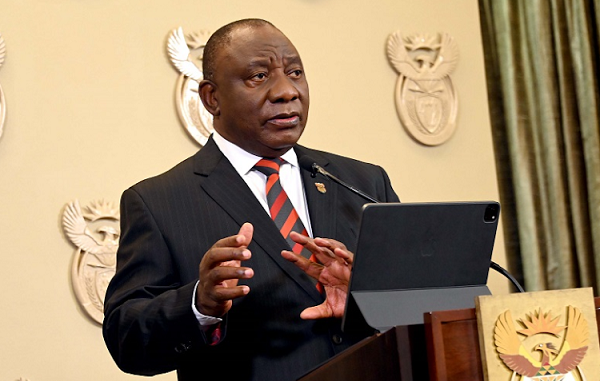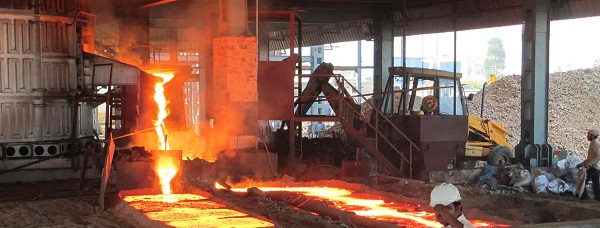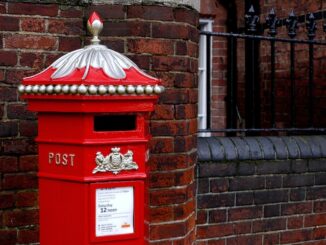

Founder Turnaround Talk
Hamlet is one of William Shakespeare’s most analysed and reproduced works. Different iterations of the tale have graced stages and screens for years. One of the most prophetic quotes of our age comes from the play. In Act I Scene IV Marcellus says: Something is rotten in the state of Denmark. This has been adopted and has been used over the years to describe any situation where something is not quite right.
BRPs and turnaround professionals are well aware of the role that Covid-19 has played in placing companies, and industries, in distress. But how is it that the rest of the world has begun implementing plans to move on from their distress while South Africa is languishing and is at pains to reinvigorate its own economy? Is there something rotten in the State of South Africa?
We have made fleeting mentions of Government’s role as an Agent of Distress in several different articles, touching on several different industries but let us put this into context and analyse what one might consider the common enemy for most BRPs.
Alcohol is a problem
The last time alcohol was this problematic was in 1920s America at the hight of the Prohibition Movement. Fast forward a century later and you would swear that alcohol was the sole reason why people in South Africa were contracting Covid-19.
Since March 2020, Government has imposed four bans on alcohol. This has come at a significant cost. A recent article on Turnaround Talk pointed out that:
- the sales revenue lost as a result of the bans is approximately R36.3 billion;
- the country’s annualised GDP loss due to the bans is approximately R51.9 billion; and
- tax revenue loss (excluding excise) to the fiscus from the value chain arising from the bans amounts to R29.3 billion.
Excluding the potential unemployment risk (which will be discussed later), South Africa lost an estimated R117.5 billion from the alcohol ban.
In addition, the tax revenue loss (excluding excise) to the fiscus from the value chain arising from the bans amounted to R29.3 billion (equivalent to 2.3% of tax revenue) and direct excise tax revenue lost across the nation was R8.7 billion (equivalent to 21.2% of excise revenue).
A spokesperson from the South African Liquor Brandowners Association (SALBA) pointed out that the country’s GDP loss was approximately R51.9 billion—1.0% of the total GDP measured at market prices due to the three bans. “If you factored in the loss of potential total capital formation—some R21.7 billion (equivalent to 0.3% of national capital formation, or fixed capital investment in 2019)—then the prohibition measures could only be viewed as a national socio-economic disaster”.
The other side of this, which will be much harder for Government to control and eradicate, is the growth in the illicit alcohol trading industry.
The research report entitled Illicit Trade: Alcoholic Drinks in South Africa in 2020 (which was commissioned and released by various industry organisations) indicates that illicit alcohol trade has grown at a compound annual growth rate (CAGR) of 17% since 2017 and now stands at 12% of the R177.2 billion total industry market value.
For context, in terms of volume, illicit trade made up 1 L in every 6,67 L traded in 2017. This has grown to 1 L in every 4,54 L. A spokesperson for the Beer Association pointed out that the illicit trade market has almost doubled in the last three years and, in 2020, is estimated to be worth R20.5 billion and comprises 22% of total alcohol consumption. Finally, the illicit alcohol trade sales by volume have now overtaken the entire combined wine and cider sectors (665 431 hectolitres of alcohol equivalent vs 627 758 hectolitres of alcohol equivalent).
Alcohol maybe a challenge for Government in terms of its response to the Covid-19 Pandemic, but their response (bans) has had a greater impact in terms of distress. Government is placing the industry in distress and will lament the fact that its purse strings are constrained, but they are ignoring the financial value the alcohol industry provides to GDP.

Photo By: Department of Mineral Resources
Ignore it and move on said the President to the Minister
For a long time, South Africa’s economy has been built on mining and commodity demand. Granted, this waned during the peak of the Pandemic, but there is growing global demand once again.
A recent report by Save SA Smelters points out that Governments refusal to tax the export of raw chrome ore is costing the country an estimated R8 to R14 billion worth of direct tax.
Save SA Smelters Lindelani Nyathikazi said tax imposition on the export of raw chrome ore is long overdue. “We are calling on the government to make sure that these announcements, the chrome ore tax and also the latest announcement that has been made in terms of embedded power generation, are together implemented.”
Nyathikazi also said the country has the biggest reserves of ferrochrome in the world, so imposing a tax will force the market to comply.
South Africa was a world leader in terms of beneficiation. The news from Save SA Smelters leaves us with key questions which will be answered in another article. Governments stance when it comes to the non taxation of chrome ore is suspicious at a time when Government constantly points out that it is short of tax revenue.
Hello darkness my old friend
In addition to the normal challenges that South Africans face, Eskom instituted loadshedding in June with a dire warning that it would be with us until at least the end of 2022.
Alexander Forbes Chief Economist – Isaah Mhlanga – pointed out that the management of loadshedding is important.
If we are focusing on the recent round of loadshedding (which was instituted at the beginning of June), it is difficult to quantify the impacts of an event that has lasted only a couple of weeks. It is even more difficult to quantify this because we are still seeing a few restrictions in terms of global supply chain. Therefore, it is difficult to disentangle the challenges of the Pandemic with loadshedding. What we do know is that South Africa’s contraction in 2020 was 7% and we faced the worst period of loadshedding since 2008. The loadshedding that we have seen this year thus far cannot be worse than 2020.
Where are Governments plans to address this? How long has Government known that this would be a future risk and that it would cost the economy billions of Rands in revenue? Finally, how close is the Eskom grid to complete collapse?
The tough task ahead
Finally, let’s look at the jobs that are at risk as this is at the heart of the business rescue process.
The energy crisis is a major constraint on economic growth. Economic growth is the creator of jobs. Without energy, it will be difficult to reinvigorate South African economic growth. Therefore, it is fair to say that in terms of us recovering from the Pandemic, the energy crisis is a binding constraint – warned Mhlanga.
Through its position on the taxation of raw chrome ore, Save SA Smelters has accused government of sabotaging its own economy and placing over 80 000 jobs on the line.
Finally, the SALBA report points out that the cumulative impact of the three alcohol bans (before this most recent one) has put over 200 000 jobs, supported by the alcohol value chain, at risk in the nation’s informal and formal economy.
For the BRP addressing these challenges, it may seem as if they are scaling Mount Everest without the assistance of a Sherpa or an oxygen tank. It may even seem that this task is more difficult than simply addressing the role of Government as a protagonist of distress, but fear not and take heart at least it will keep us all busy.
Good luck BRPs, its jungle out there.




